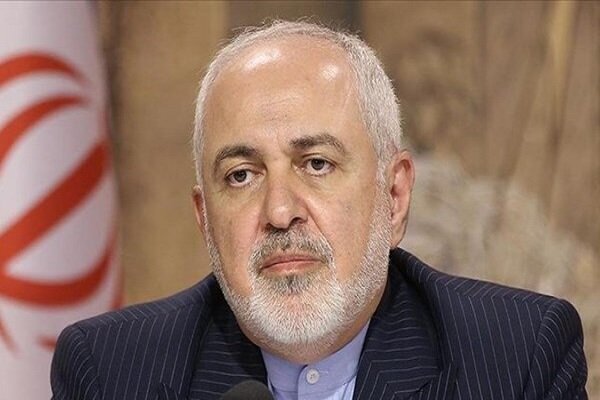Zarif: E3 share blame with U.S. for ‘irreparable harm’ to Iranians

TEHRAN — Foreign Minister Mohammad Javad Zarif has said the E3, namely Britain, France and Germany, share the blame with the United States for irreparable harm to the Iranian people.
Zarif made the remarks in a tweet on Monday night, in which he enumerated seven points that he emphasized during a ministerial meeting of the remaining participants to the Iran nuclear deal, officially called the Joint Comprehensive Plan of Action (JCPAO).
“At Ministerial Meeting of remaining JCPOA participants, I emphasized: 1. Last chance for E3/EU to save the JCPOA; 2. Iran-EU 2014-2019 trade data proves E3/EU have gravely breached their JCPOA obligations,” Zarif wrote.
“3. E3 share the blame with US for irreparable harm to Iranians; 4. JCPOA timetable is inseparable from the accord. Renegotiation is out of question; 5. Our region's crises & arms are mainly imported from US/E3. But we collectively decided to exclude these issues.”
He said, “6. "Democracies" cannot ask Iran to violate parliamentary legislation; And last but not least: 7. ALL must return to effective JCPOA compliance. Iran will rapidly reverse remedial measures in response to US unlawful withdrawal—and blatant E3 breaches—when US/E3 perform their duties.”
Zarif also stressed that the Iranian people must feel the effects of the lifting of sanctions.
Iran and six world powers, including the U.S., Russia, China, France, Britain and Germany, together with the European Union reached the JCPOA in 2015, under which Iran agreed to put certain restrictions on its nuclear program in exchange for termination of sanctions.
However, despite Iran’s strict compliance with the deal, U.S. President Donald Trump withdrew the U.S. from the deal and imposed harsh economic sanctions on the Islamic Republic to force it to negotiate a new deal.
The three European parties to the deal devised a mechanism aimed at facilitating legitimate trade with Iran called INSTEX in order to circumvent the U.S. sanctions.
Iran, however, says INSTEX has proved ineffective over the past two years.
“The system must prove its efficiency after two years,” Majid Takht-Ravanchi, Iran’s ambassador to the United Nations, said recently in reference to INSTEX.
Meanwhile, after Europe failed to protect Iran’s interests under the JCPOA, Iran began to reduce its nuclear commitments on May 8, 2019 – exactly a year after President Donald Trump withdrew the United States from the nuclear deal and imposed harsh sanctions on Iran.
Takht-Ravanchi said Iran’s reduction of its nuclear commitments was a result of the other parties’ violation of the deal and was within Iran’s rights under the JCPOA.
MH/PA
